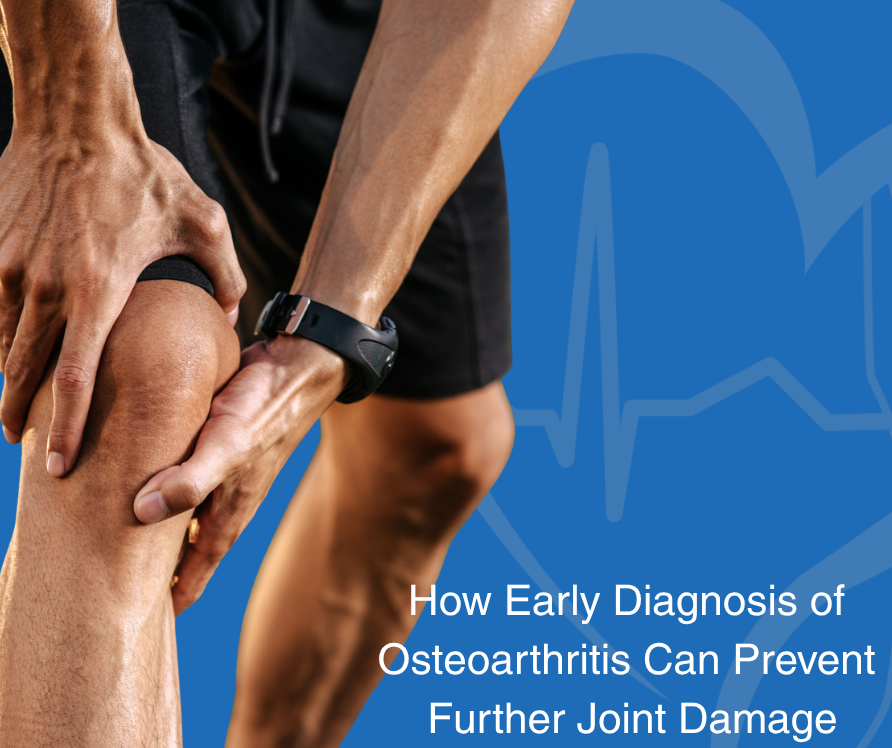
That constant pain in your knee isn’t going away, is it?
Maybe your fingers feel a bit stiff in the mornings, or your hip aches after your evening walk. You’re probably just telling yourself that it’s nothing serious.
Just part of getting older, right?
Here’s the thing, though, waiting to get it checked out could mean the difference between managing the condition well and dealing with serious joint problems down the line.
No one wants to be told they have arthritis. However, if it is discovered early, then that gives you leverage.
When osteoarthritis is detected in its earlier stages, before significant damage has occurred, then there are many greater possibilities available.
Cartilage is the cushioning between bones. It gradually wears down. In the early stages, there is still enough left to work with. Something can be done about it.
If you wait too long, the protective layer becomes so thin that treatments are no longer nearly as effective.
Additionally, you prevent the entire domino effect from occurring. One bad joint often leads to problems elsewhere because your body naturally tries to compensate for it.
Ignoring joint pain does not make it go away. It only allows something to get worse while you are unaware. This is what is actually happening inside:
One day you realize you’re walking differently to avoid the pain, and now your back hurts too. That’s how it spreads.
Early treatment isn’t just about popping painkillers. It’s about actually protecting what you’ve got left.
Sometimes the basics work better than you’d think:
When there’s still healthy cartilage to preserve, doctors have better tools:
Your body’s pretty good at sending signals when something’s wrong. Listen for these:
Yeah, some aches come with age. But persistent problems in the same joints? That’s worth checking out.
The majority of people wait until the pain becomes severe and obvious to seek any treatment for it or address it in any way. By then, some damage has already taken place.
You have to stay ahead of it. That means being able to do whatever you want to do; keeping your ability, whether that’s gardening or playing with kids or just having a day without constant aches and pains at the end of it.
The treatments we have now can genuinely change how this plays out for you. But they’re most effective when you don’t wait until you’re limping around or can barely grip a steering wheel.
If joint pain has been hanging around longer than it should, it’s time to get some answers.
Reach out to Heart Vascular & Leg Center and let’s figure out what’s going on before it gets harder to treat.
No, you really actually reverse any damage that has already occurred! You can only slow it down if detected early.
If the same joint hurts for more than a few weeks, or if you’re changing how you move to avoid pain then get it looked at. Better to check and find nothing than wait and regret it.
Also visit:

© Copyright 2024 Vascular Health Partners LLC. All Rights Reserved
Designed By CyberWorx